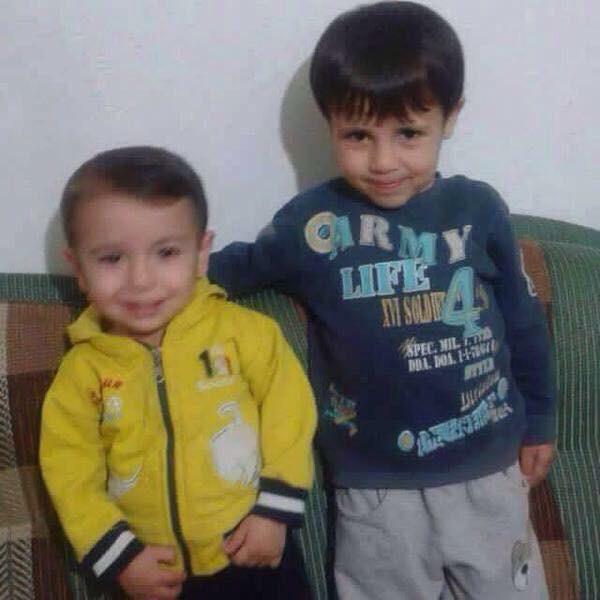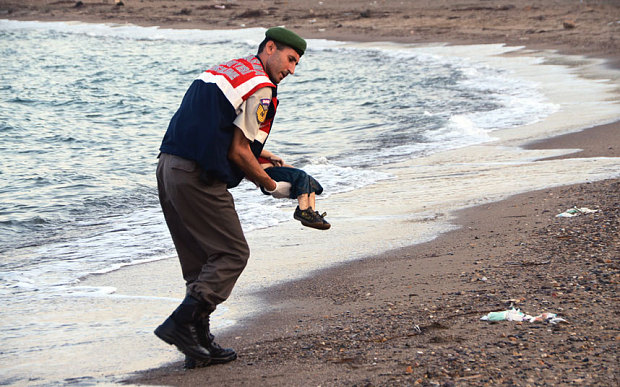On this very sad morning we thought we’d publish this feature which comes from issue 14 of CQN Magazine. BRT&H tells the story of one Celtic player, Matt Lynch, and those immigrants to Scotland who have shaped the club and Scottish society for the better. Makes you think…
A couple of years ago, I was in the midst of a business meeting with three other guys when it was pointed out by one of our number that none of us would have been present were it not for the fact that all our respective grandfathers had taken the decision to emigrate to Scotland many years before. Further, by sheer coincidence, all three men concerned had arrived by boat and had come from a country beginning with the letter I— Ireland, Italy and India.
All three men arrived in Scotland in the 1920’s, and I suspect that they would have found Glasgow a somewhat frightening and inhospitable place to start with. 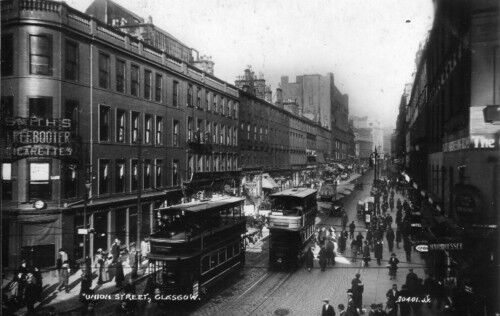
Many immigrants, especially from an Irish background, will have gravitated towards watching and indeed playing for Celtic due to the Irish roots that were imbedded within the club. Yet it may be surprising to some that Celtic actually fielded an Indian player before they played an Italian. The barefooted ball juggler Mohammed Salim turned out for Celtic in 1936-37—several years before Rolando Ugolini deputised for the incomparable Willie Miller in 1946.
By playing Salim, Celtic became the first European club play an Indian so breaking all sorts of social barriers in so doing. Apparently he was a great entertainer—juggling and doing tricks with the ball—and all in bare feet!
Celtic FC have always been an inclusive club and yet for some reason there are those in Scotland who would seem to want to disparage the descendants of immigrants from the 20’s, 30’s and 40’s—presumably for their sporting allegiance, possibly for their perceived religion and because they come from a background which is not traditionally— well—- Scottish.
Yet what is not often discussed is the fact that many immigrants from the three I countries were able to show a considerable work ethic, a desire for betterment and education, and a willingness to integrate with Scots and others that was not always shared by some who were born and bred along the banks of the Clyde and elsewhere in Scotland.
As the generations have moved on, so has the role of Celtic in this evolutionary process. Only a couple of weeks ago, a couple of Indian boys were training at Lennoxtoun,– Mahhamed Salim had been asked to play his trial in front of 1,000 Celtic club members and three coaches— and at the league match the following Saturday Celtic hosted some 300 members of the Asian community as guests. Think about that for a moment—300 members of the Asian community as guests of what is seen as a Celtic ( with a hard C ) Club?
Further, we fans are tempted to measure success at Celtic Park for a player (at least) in terms of the number of first team appearances—yet in true terms that surely cannot be the sole measure of success for the club itself or for someone coming to Celtic and hoping to make a success of life through the club. In terms of appearances for instance, Jock Stein would probably not be held up as a Celtic great yet no one could deny that Stein was a true Celtic giant. When you think of people such as Neil Mochan, John Clarke, Sean Fallon and even Tommy Burns you don’t just think of their first team appearances- you also think of what they put into, and what they got out of, the club over and above simply being a player.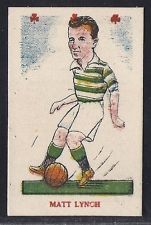
In social terms Celtic’s community role has to be measured in a very different way. The club itself offered a social focus for anyone in the community—especially the immigrant from any nation, and of course the charitable roots and aspirations of the club are recognised by all.
Someone who came from an Immigrant background and who made his mark at Celtic Park was Matt Lynch. Like many families from Donegal the Lynch family came to Scotland in search of the better tomorrow. Matt was on the books of the club as a player for something like 14 years between 1935 and 1948. A right half or right winger, Matt was a hard tackling all action player who, it could be said, was not at Celtic Park in the best of periods—either for the club as an institution or for any individual given the austerity of the time and the impact of war. The team had few stars in this era and unfortunately for Matt he was used more as a utility player- often deputising for the wizard like Delaney or for the impressive Chic Geatons. 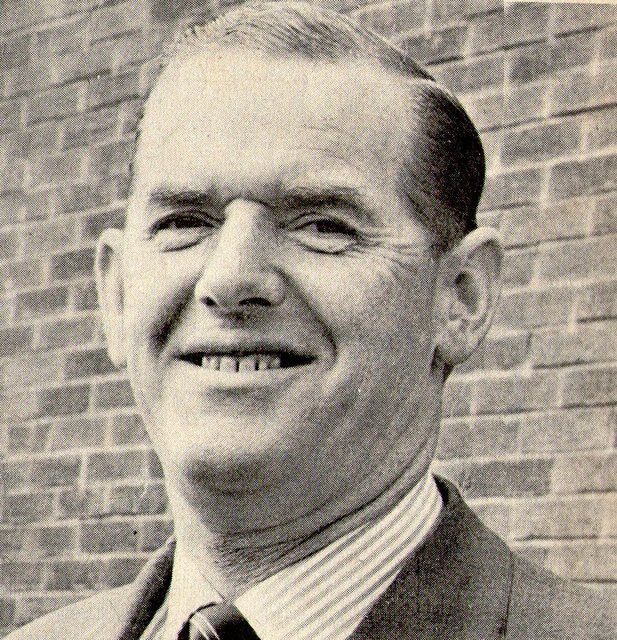
It would be fair to say that Celtic was not well managed at the time and some players with potential were allowed to play bit parts in these years. Had certain players such as Matt Lynch been properly nurtured and coached, then their time at Celtic may well have been far more successful. As a result, Matt probably made fewer appearances than his ability merited yet he remained faithful and loyal to the club and its ethos throughout.
However, it is away from the field of play that I want to discuss Matt Lynch. He went on to gain a degree from Glasgow University- something unusual for a footballer especially at the time– and for many years was a respected Maths teacher. Clearly immigration was a success for Matt and his family and he grabbed the opportunity to better himself and his lot with both hands.
However, after the playing days were over, Matt continued to serve the club for many years as the Honorary President of the Celtic Supporters Association, and I recently came across a photo of him presenting the player of the year award to Bobby Murdoch in 1974.
For Matt, it was not just about playing for Celtic—it was about representing Celtic, being part of Celtic, and supporting Celtic and all that Celtic represented. I got to know him slightly in his later years and had a few drinks with him in his local– Harvie’s Bar in Paisley—and he would happily talk about all things Celtic including his playing days alongside one of my own relatives Charlie McGinley.
The makeup of the Celtic support has greatly changed since the days when Matt Lynch or Mohammed Salim pulled on the green and white shirt. With the advent of air travel, European competition, and television the pull of Celtic Football Club has ceased to be solely local and the club is a very different beast to the institution that existed before the middle of the last century.
A far greater proportion of the support are now University educated yet it is clear that education and the opportunity it brings is not something that is taken for granted. Anyone who follows the pages of CQN will know that posters regularly report with pride that a son or daughter, grandson or granddaughter has attained a degree in some discipline or other and is set to go on to a chosen career.
The very pursuit of a university degree and a following career has given rise to what might be described as the further adventures of the immigrant families who came to Glasgow—with many young people pursuing degrees and jobs far away from the banks of the Clyde whether that be in England or much further afield such as The USA, Australia or elsewhere.
The result of this is that the Celtic support is now to be found throughout the world with new immigrants arriving in far off lands and cities—and again it seems that the support of the Celtic Football Club becomes a social focus for those who have left “home” to find prospects and the better tomorrow elsewhere. There are Celtic Supporters Clubs and bars in some of the most unlikely of places.
Further the “local” home support now includes many ethnicities and this increases each time Celtic signs a new player who comes from Japan, Honduras, Poland or wherever. When I go to Celtic Park these days I see people from not only all walks of life—but whose families originated from many corners of the world— and all with a green and white scarf around their neck. That is something that the club should be rightly proud of—and never ashamed to highlight or promote.
Over the course of the weekend, I received a message or two via twitter from a young man I know. I haven’t seen him in a couple of years as he has been away studying at the University of Chicago. He will graduate this year with a degree in Law and of recent he has been editing the Sports section of the University Newspaper.
His dad’s family was one of those who made their way to Glasgow from India—again in search of the better tomorrow—and his father went on to be a University graduate and is now a community doctor in the West of Scotland. His mother graduated as a lawyer, but eventually chose to move away from mainstream law—in fact away from law altogether– into a career whereby she gives advice and support in the community through one of the Government agencies which are vital in an urban society.
Both parents are Celtic fans, and mum in particular is to be found at most Celtic home games. Perhaps that is not surprising as Matt Lynch was her uncle and her father Jim—Matt’s brother—was every bit as much a Celtic man as Matt—he just didn’t play at the same level.
The Young man in Chicago gained entry to the University partly on the basis of a soccer scholarship, and in support of his application he stressed that he had played for Celtic FC at youth level.
Whilst the young man concerned and his family undoubtedly take great personal credit for what he has achieved thus far, there is no doubt that Celtic Football Club can take some pride in a young fella who played in their youth ranks and who has and will go on to make his mark away from the football field—Much like Matt Lynch did with his teaching career after he hung up his playing boots. 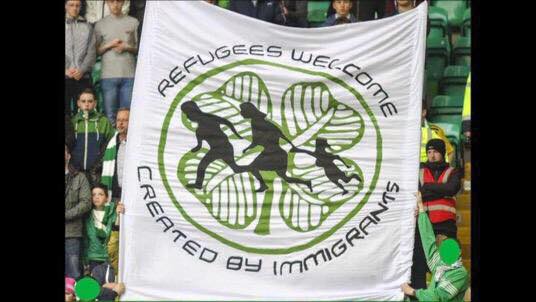
Celtic Football Club, those who play for the club, work for the club and those who support the club, have come a long way from the austerity of the 1930’s in all sorts of ways. There is far greater integration in Scottish Society and perhaps more importantly there is a far greater instance of the Celtic Fan making their way in all walks of life in many different countries.
The Club itself has a far greater function—including an ever growing educational function—than merely putting a football team of highly paid stars out on to the pitch on a Saturday.
Unfortunately, Mohammed Salim became homesick after a few months and eventually made the decision to go back to Calcutta although the story goes that his family retain an uncashed bank draft from Celtic for the sum of £100 ( the sum was sent by the club to help Salim through some hard times ) and a Green and White hooped shirt in memory of a young man’s time at Celtic Park in the ‘40’s.
Celtic success cannot merely be measured by the number of first team appearances made by any one individual or even by the number of trophies won— that is a very narrow definition of success.
For those of us whose Grandfathers and Grandmothers made the brave decision to take a boat to Scotland in search of a better tomorrow, and who have grown up listening to stories about Celtic, watching Celtic and doing things in the Celtic way there is a never ending sense of pride in hearing stories about young people who have achieved something in their own chosen fields—yet who still retain an undying affection for a football club—no matter where they are.
Ciaran Kohli Lynch told me that when he comes home in the summer he may look to play football at Junior level while he continues his journey through life. No matter what he level he plays at—like his Grand Uncle Matt—he will have walked through Parkhead’s gates and learned to play football—and the game of life— The Glasgow Celtic way.
Recently an Italian by the name of Andrea Pirlo said that Celtic were a true European force in football—not just because of the calibre of player they field or the size of the stadium they play in but because of who and what the club represents.
I believe he was talking about all those people who took a boat to Glasgow from another country – some starting with the letter called I and elsewhere long ago in times of hardship— and the generations that followed who , today, still look for a better tomorrow on the back of that boat trip and who follow a football club that welcomed all then and still does to this day.

